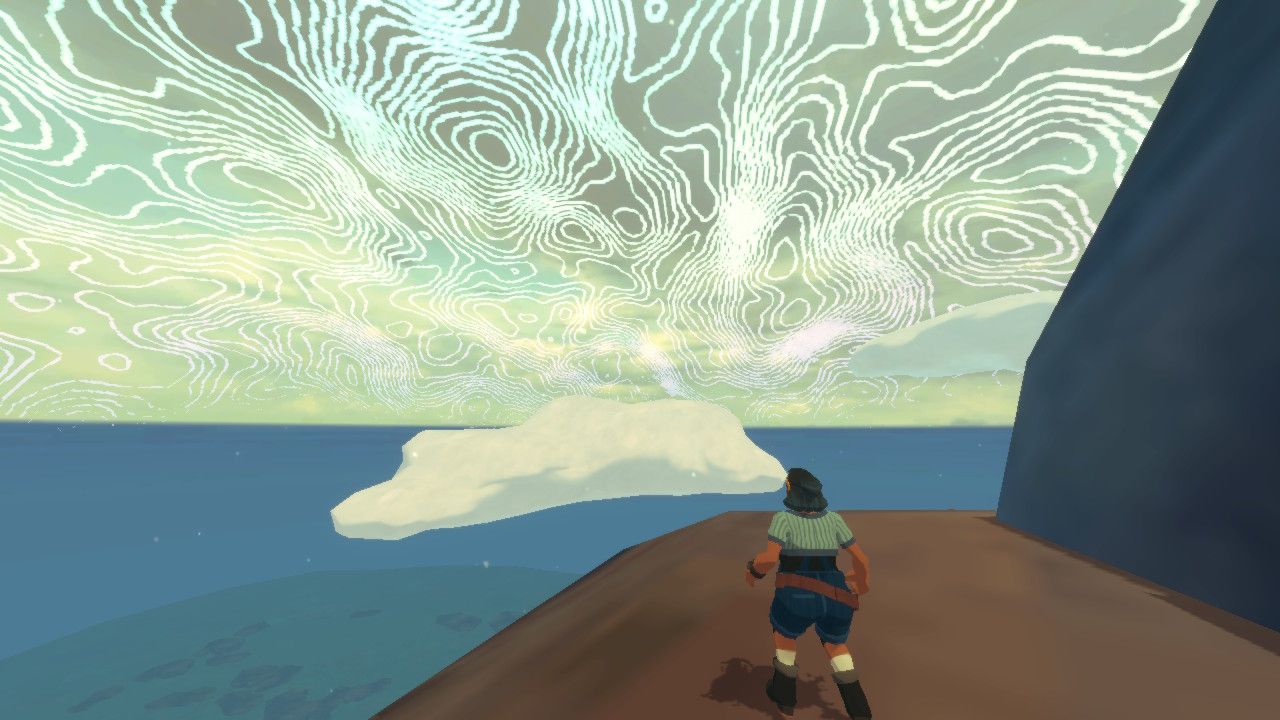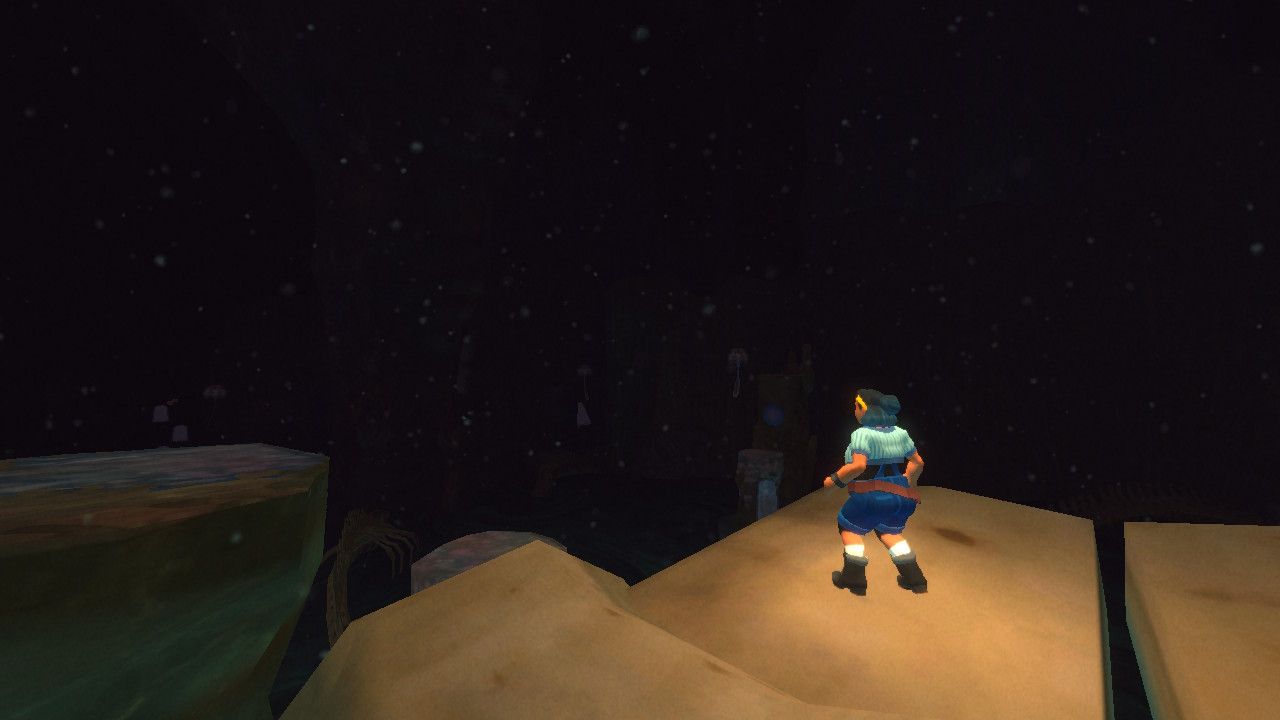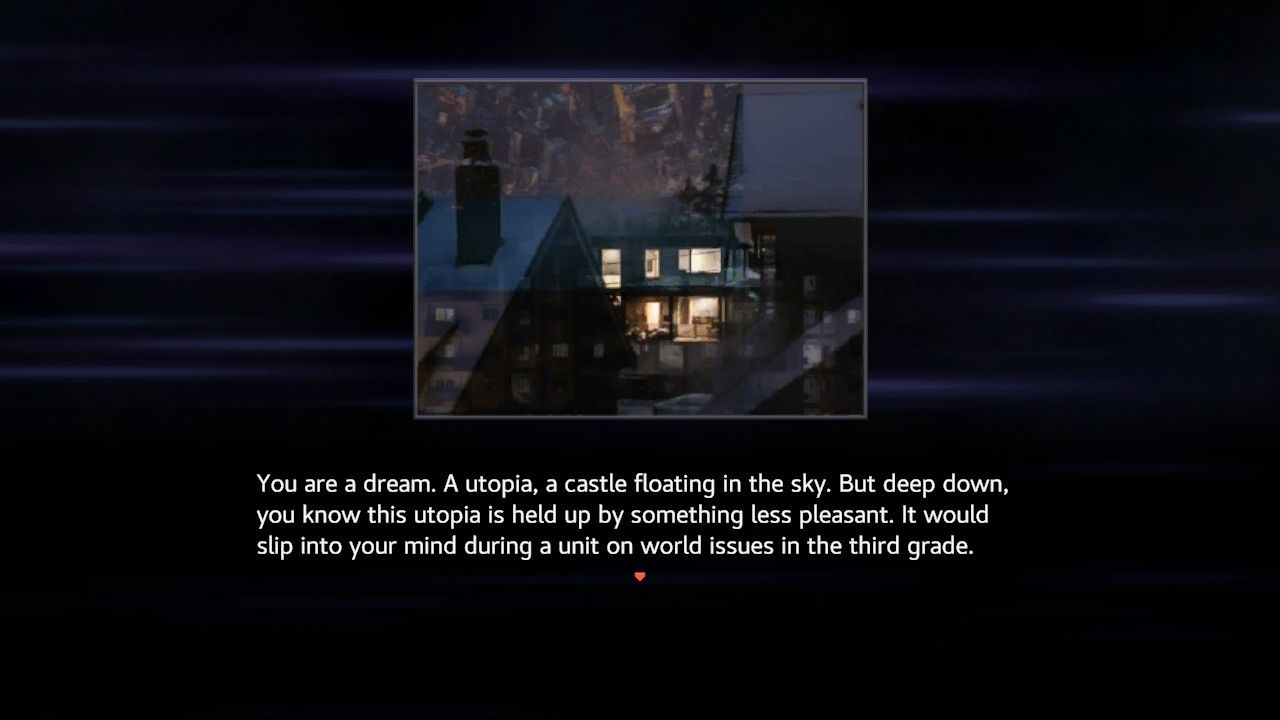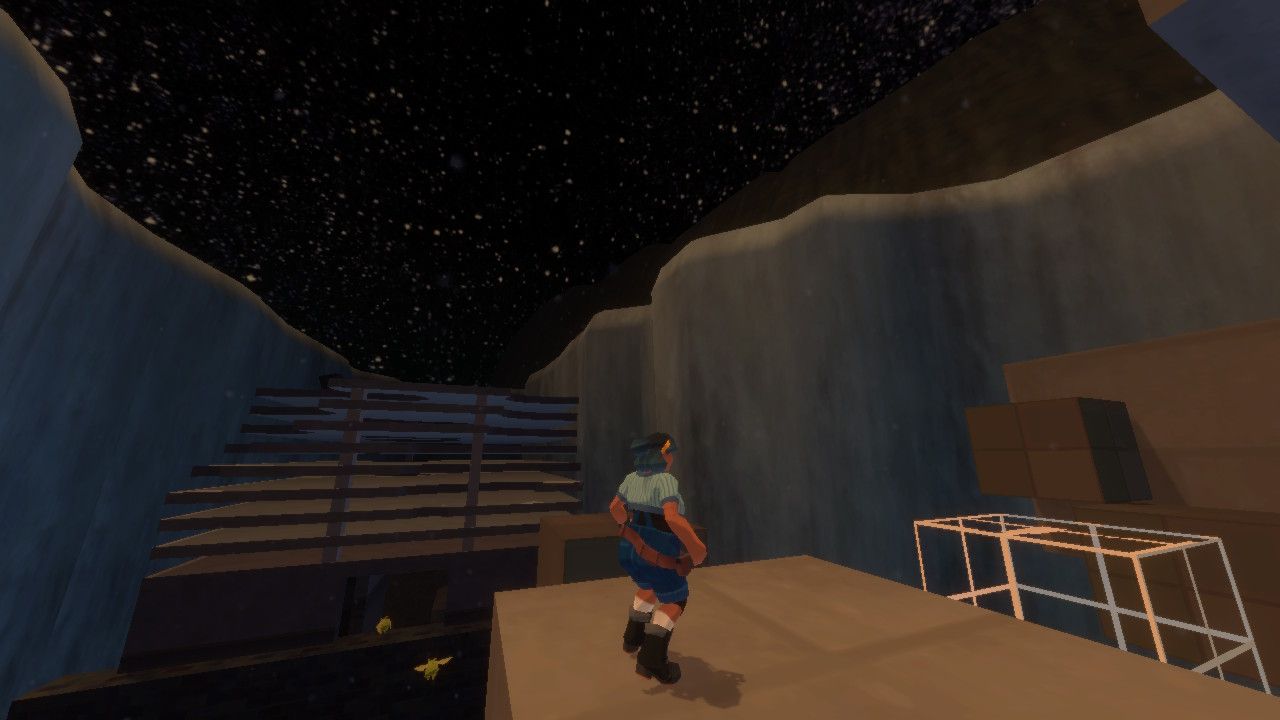Sephonie Is Better Than Ever on Consoles
The latest from Analgesic is an elevated experience on consoles

Last fall, I flew across the country to see my family for the holidays. Just before leaving, I downloaded the latest game from Analgesic Productions – the story-driven 3D platformer Sephonie – onto my laptop. I'd followed the game's development with breathless anticipation; after their previous game, the brilliant Anodyne 2: Return To Dust, I was certain that anything this team put out would blow me away.
But, as I played on my computer in suburban Virginia, I found Sephonie to be a totally frustrating experience. The controls felt slow and imprecise, unable to handle the complex inputs and precise camera control that the game asked of me. This problem was compounded by the game's checkpoint system; every time the controls failed me – which was often – I would be forced to redo multiple frustrating platforming segments before arriving at the one that had actually stumped me. This created an experience that felt punishing and repetitive, in which I had to fight for every inch of forward progress. I could feel that Sephonie's movement systems were powerful and unique, and the game's gorgeous, earth-toned environments and lush soundtrack made me want to utilize them to their fullest. Instead, I felt defeated.

When I returned home, I searched for solutions and eventually managed to complete the game with my PS4 controller. But while this improved the experience immensely, I couldn't wash the taste of those first few frustrating hours out of my mouth. Moreover, I couldn't stop thinking that, even if my experience hadn't been plagued with control issues, I would've been lukewarm about the game anyway. Part of this was my own expectations; Anodyne 2's genre-bending experimentation touched me so deeply that any game would've felt like a comedown. But another part of it was the platform itself.
Sephonie rewards sustained close attention. It has complex and nuanced things to say about identity, belonging, nationality, collaboration, environmentalism, and human connection, following a group of three scientists – Amy, Riyou, and Ing-Wen – from different places across the globe as they explore the fictional Sephonie Island. In turn, the island itself learns more about them, eventually gaining a humanoid form to talk to them directly.

This is a weighty and academic approach to storytelling, based not around character conflict but around grand philosophical ideas. As such, the game regularly cuts to long, languorous cutscenes that poetically sketch out each character's relationship to a certain thing, or follow the humanoid form of Sephonie as it travels on a train and reminisces about the three main characters. The tone is reminiscent of the "slow cinema" films of Andrei Tarkovsky or Apichatpong Weerasethakul, with a melancholic, drifting sense of calm.
Sephonie's slowness feels like a bit of a mismatch on PC since the platform emphasizes multifunctionality. I use my computer not just to play games, but to text my friends, work, and create music. I surf the web when I'm bored and watch videos to fall asleep. Its screen is less a portal to a new world than it is a constant, unremarkable presence. And no matter what activity I'm using it for, I'm always aware that I could be doing something else with that time. It's a machine for distraction, not immersion. So when Sephonie demanded my time and attention – my reflexes and patience for its platforming sections, my analytical curiosity for its cutscenes and story – I wasn't quite able to meet the game where it was.

But on July 21st, Sephonie was released for Switch, Playstation, and Xbox. And on consoles, Sephonie shines. Analgesic sent me a code for the Switch version, and I played the game on a Switch OLED, mostly in handheld mode. It feels almost cliché to say that Sephonie is a great game for the Switch because, in theory, most games are great for the Switch. The system's utopian promise is that you can lose yourself in a virtual world anytime, anywhere, without making the kinds of compromises that defined handheld gaming in the Game Boy and DS eras.
But Sephonie is a great game for the Switch. It doesn't strain the system's performance, and its setting is so welcoming and beautifully realized. Its warm color palette and soft, rounded shapes look like candy on the Switch OLED's screen, while its soundtrack is full of natural ambiance and soothing synth tones. It's a lovely place to land when I have a little spare time on the bus. But Sephonie would be wonderful even if I were playing on PlayStation or Xbox. Turning the game on feels like falling into a better, gentler world for a few minutes at a time; it's a game that you get absorbed into, rather than one you use for a quick dopamine hit.
This isn't to say that Sephonie is perfect. On the Switch, the Joy-Cons feel rather cramped for the complex analog stick trickery the game asks of you. And while its subdued look is gorgeous to take in, it also meant that I was occasionally confused about where the game was asking me to go; I often felt like I was doing things incorrectly, breaking the game's systems just to push forward.

But in a way, that's part of Sephonie's charm, too. As in many of Analgesic Productions' games, Sephonie offers a sort of directors' commentary when you beat it, with postgame areas showing the developers' process as they built each level and notes explaining how they arrived at the final product. It's a very video game-y video game and one that doesn't shy away from the particular limits and quirks of the medium. This, more than anything, is why it's a perfect console game; a console is built specifically for games, so when you turn it on, you're promising yourself that you will focus on the game in front of you. You're allowing yourself to be transported. And Sephonie, for all of its flaws, is a supremely transportive experience, a journey well worth taking.